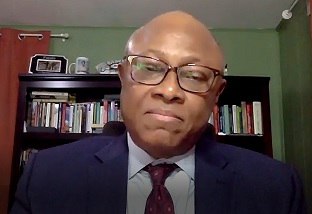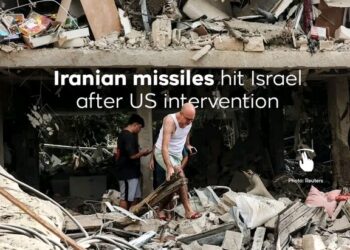
Nigerian immigrants in the United States are increasingly staying indoors to avoid deportation amid intensified immigration crackdowns under President Donald Trump’s administration, according to Professor Nimi Wariboko, a Nigerian academic and Professor of Social Ethics at Boston University.
Speaking on Inside Sources with Laolu Akande on Channels Television, Wariboko highlighted the growing anxiety within the Nigerian community due to stricter immigration policies. He noted that many undocumented Nigerians have resorted to self-isolation, fearing that even minor disputes with neighbors could lead to reports to immigration authorities.
“If you quarrel with your neighbors, they can call the immigration enforcement unit. There is that palpable fear,” he said.
Wariboko also raised concerns about the Trump administration’s proposed reversal of birthright citizenship, warning that it could create challenges even for Nigerians with legal status or U.S. citizenship.
He urged the Nigerian government to advocate for its citizens abroad, stressing the economic implications of mass deportations. “Even for the sake of economic interest, Nigeria should care about that because there is money that comes from here to sustain different families,” he said.
Citing a World Bank report, Wariboko emphasized the importance of remittances, noting that Nigerians abroad sent home approximately $20 billion in 2023, a crucial support for many families and the Nigerian economy.
The current crackdown mirrors Trump’s first-term immigration policies. In 2020, Nigeria was added to a list of countries with restricted entry into the U.S. due to non-compliance with identity management and information-sharing requirements.
Reports indicate that U.S. Immigration and Customs Enforcement (ICE) has made over 11,000 arrests within the first 18 days of Trump’s second term, leading to overcrowding in detention facilities and the use of federal prisons to house detainees. Some individuals have reportedly been transported to Guantanamo Bay, a move that has sparked controversy and criticism.
As U.S. immigration enforcement tightens, many Nigerian immigrants remain on edge, grappling with uncertainty and fear about their future in the country.











